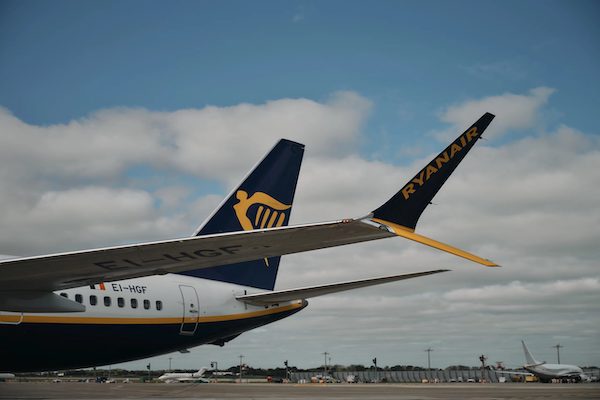Ryanair is set to cut its German flight capacity by 12%, impacting 22 routes. This decision, driven by ongoing aviation tax disputes, highlights broader industry challenges.
The budget carrier’s move underscores significant operational and economic concerns, as it seeks to adapt to the fiscal pressures within the German market.
Ryanair’s Capacity Reduction
Ryanair has announced a significant reduction in its German operations for the upcoming summer season, cutting capacity by 12%. This decision affects 22 routes and accounts for 1.8 million seats, marking a notable impact on German aviation offerings.
The airline cites the persistent burden of aviation taxes and high operational costs as the key factors driving this reduction. These costs, according to Ryanair, are hindering recovery and growth within the German market.
Closure of Key Operations
Ryanair has stated its intention to completely shut down its bases in Dortmund, Dresden, and Leipzig, significantly curtailing its presence in these important regional hubs. Hamburg will also see a dramatic reduction, with operations being cut by 60%. These closures are expected to have severe implications for local economies and connectivity.
This move follows Ryanair’s earlier warnings to the German government regarding aviation taxes and security fees, which the airline argues are disproportionately high compared to other European countries. The carrier has been vocal about the need for a competitive tax structure to stimulate growth.
Impact on Germany’s Aviation Market
The loss of 1.8 million seats is anticipated to negatively affect the German aviation market, which is already struggling to bounce back to pre-pandemic levels. The market currently stands at just 82% of 2019’s traffic figures.
Ryanair has highlighted that Germany now faces the highest airfares in Europe, exacerbated by a €6 billion bailout for Lufthansa, which may have unintended consequences for competition.
In contrast, other European countries like Sweden and Italy have been lowering entry costs to bolster recovery, leaving Germany lagging in terms of market competitiveness.
Industry-wide Response
The German aviation sector has seen similar responses from other carriers. Lufthansa and easyJet have both voiced concerns about the taxes, with easyJet also reducing its services. This reflects a broader industry discontent with the current cost structures imposed by the German government.
Ryanair’s chief executive and stakeholders urge for a reconsideration of the aviation tax rise and a deferral of the planned increase in security fees. They argue such measures are vital for maintaining Germany’s position as a key player in European aviation.
Airlines are pushing for a level playing field to ensure sustainable growth and competitive pricing for consumers.
Government’s Stance and Future Prospects
Despite repeated calls from airlines, the German government has yet to announce any significant changes to its tax policies. This raises concerns about the future viability of low-cost aviation in the region.
The aviation sector is crucial for economic growth and connectivity. If the current policies persist, the long-term outlook may include reduced investment and loss of market share to other European hubs.
Experts suggest that without policy adjustments, Germany risks falling further behind in aviation innovation and development, impacting both domestic and international travelers.
Economic Implications
By closing several bases, Ryanair’s decision is set to impact local economies, reducing job opportunities and affecting tourism-related businesses in these areas. This ripple effect could have lasting economic repercussions beyond the aviation sector.
The ongoing tax dispute raises broader questions about the balance between revenue generation for the government and the need to foster a strong, competitive aviation environment.
If left unaddressed, these economic implications could deter other airlines from expanding or maintaining operations within Germany, potentially isolating the market further.
Summary of Key Points
Ryanair’s strategic reduction and the closure of key bases in Germany signal a significant shift in the market dynamics, influenced by high operational costs and taxes. The 12% capacity cut will notably affect the aviation landscape and highlight broader industry challenges.
As stakeholders await potential policy changes, the focus remains on achieving competitive parity and ensuring the sector’s sustainability. The developments are closely watched by industry analysts and aviation experts.
Ryanair’s capacity cuts in Germany reflect deep-rooted financial and operational challenges within the aviation sector. Future government action will be crucial in shaping the country’s aviation recovery trajectory.

